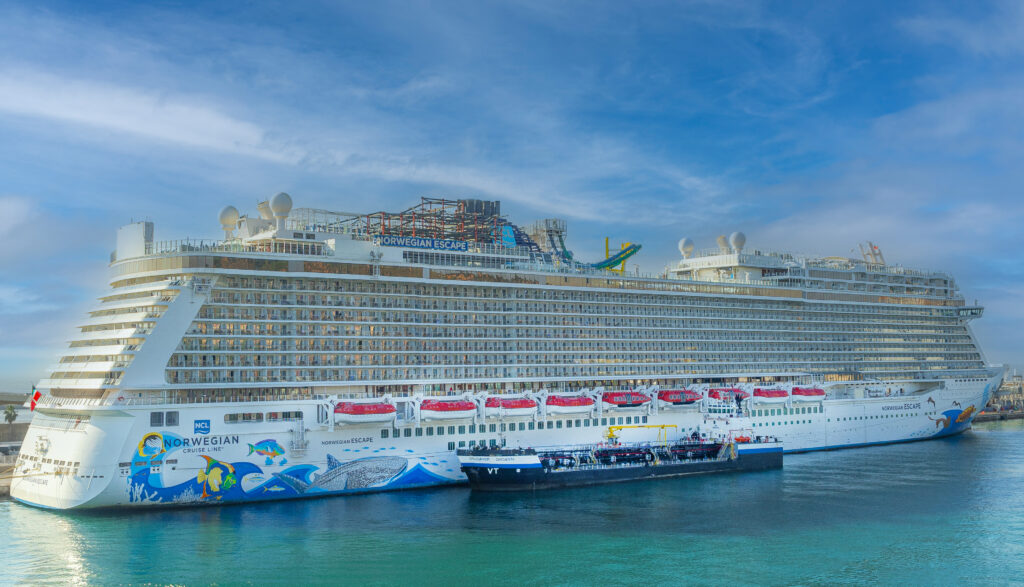Cepsa, a leading supplier of energy for maritime transport in Spain, has undertaken its first direct supply of second-generation biofuels for the cruise industry at the Port of Barcelona. Further supplies have been confirmed for the coming months, with biofuels available on a regular basis from the Ports of Barcelona and Algeciras.
The supplied fuel contains a 24% sustainable component, which will prevent the emission of approximately 3,000 tons of CO2, equivalent to planting 200,000 trees. This biofuel has been produced from used cooking oils, promoting the circular economy.
Operated by Norwegian Cruise Line Holdings (NCLH), the Norwegian Escape, a 1,069-feet-long passenger vessel, received the first supply in late July and is scheduled to lift biofuel supply throughout the EU season. Cepsa also supplied biofuel for another two NCLH-operated vessels, the 734-feet-long Seven Seas Voyager and the 785-feet-long Oceania Riviera, in early August.
With this supply, Cepsa further solidifies its position as a benchmark in the energy transition and a leader in the supply of energy for maritime transportation. Cepsa has the capacity to supply these sustainable fuels to the cruise industry on a regular basis at the Spanish ports where it operates.
Samir Fernández, director of Marine Fuel Solutions at Cepsa, commented: “We are delighted that second-generation biofuels are now being harnessed by the cruise industry as they embark on their decarbonization journey. Marine fuels can be used in ships without the need for modifications to their engines, and they have a high potential for reducing CO2 emissions compared to conventional fossil fuels, achieving a reduction of up to 90% throughout their life cycle, which makes them an ideal immediate solution.”
Cepsa has a diversified portfolio of solutions to facilitate the decarbonization of maritime transport. In addition to biofuels, it includes products such as liquefied natural gas (LNG). Moreover, Cepsa expects to supply synthetic marine fuels, such as green ammonia or methanol, in the future, to be produced at the Andalusian Green Hydrogen Valley it is developing in southern Spain, one of the largest green hydrogen projects in Europe.
This initiative further underscores Cepsa’s unwavering commitment to second-generation biofuels as a catalyst for advancing the decarbonization of maritime transportation. Through its 2030 strategy, “Positive Motion,” Cepsa aims to lead sustainable mobility and promote the decarbonization of heavy transport (air, maritime and land) through the production of green molecules. The company aspires to be the leading biofuel producer in Spain and Portugal by 2030, with a production capacity of 2.5 million tons annually, and of green hydrogen with an annual production capacity equivalent to 2 GW.
Find out more Oil and Gas news.


